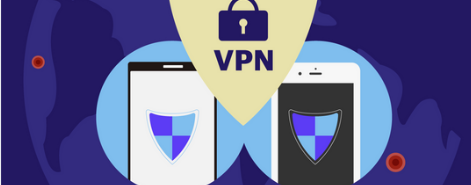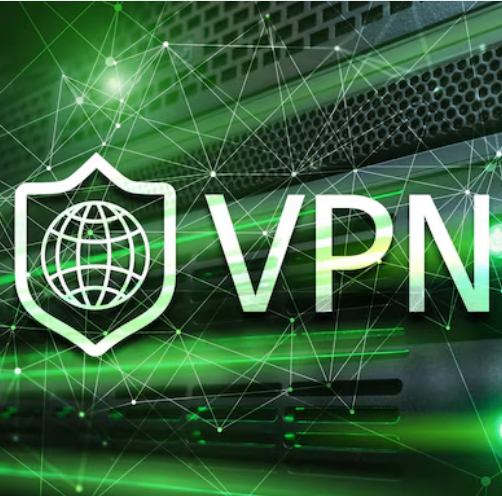VPN for Online Privacy: Why It’s the Best Choice for Protecting Your Data
In the modern digital age, online privacy has become a growing concern for individuals who wish to protect their sensitive information from cyber threats, data breaches, and surveillance. With hackers, governments, and even ISPs (Internet Service Providers) constantly monitoring internet activity, ensuring online privacy is essential. One of the most effective tools for securing your online privacy is using a VPN. In this article, we’ll explore how a VPN for online privacy works and why it’s the best option for protecting your data.

VPN for online privacy
What is a VPN for Online Privacy?
A VPN for online privacy (Virtual Private Network) is a service that or online privacy, your internet traffic is routed through a remote server, which encrypts your data and hides your real IP address. This ensures that your online activities remain private and secure from prying eyes, such as hackers, advertisers, and even your Internet Service Provider (ISP).

VPN for online privacy
How Does a VPN for Online Privacy Work?
A VPN for online privacy works by routing your internet connection through an encrypted server, effectively masking your real IP address. Here’s a step-by-step breakdown of how it works:
-
Data Encryption: When you use a VPN for online privacy, all your internet traffic is encrypted. This means that even if someone intercepts your data, they won’t be able to read or misuse it.
-
IP Address Masking: A VPN for online privacy hides your actual IP address by assigning you the IP address of the VPN server. This prevents websites, advertisers, and hackers from tracking your online movements based on your real location.
-
Secure Connection: With a VPN for online privacy, your internet connection is secure even when you’re using public Wi-Fi. This is particularly important as public networks are often insecure and easy targets for cybercriminals.
Why Choose a VPN for Online Privacy?
There are several reasons why a VPN for online privacy is considered the best choice for protecting your data:
1. Complete Encryption:
A VPN for online privacy encrypts your entire internet connection. Whether you’re browsing websites, sending emails, or making online transactions, the VPN for online privacy ensures that all your data is kept secure from hackers and third parties.
2. Anonymity and Privacy:
When you use a VPN f, your online identity is concealed. By masking your IP address and location, a VPN ensures that websites cannot track your real identity or behavior. This makes it more difficult for advertisers or malicious entities to target you with personalized ads or cyberattacks.
3. Protection from Surveillance:
Using a privacy is a great way to protect yourself from government or corporate surveillance. Without a online privacy, your internet traffic can be monitored by your ISP or even government agencies, compromising your privacy. With a , your data is encrypted, making it unreadable to anyone who may try to intercept it.
4. Bypass Geo-Restrictions:
A for online privacy allows you to bypass geo-restrictions by connecting to a VPN server located in another country. This means you can access content and services that might be unavailable in your region, such as streaming platforms, websites, and social media channels.
5. Public Wi-Fi Security:
Public Wi-Fi networks are often unencrypted and insecure, making them vulnerable to hackers who may try to steal your personal data. With a online privacy, your connection is encrypted, which protects your sensitive information when using public networks.
How a VPN for Online Privacy Compares to Other Privacy Tools
While a VPN for online privacy is one of the most popular privacy tools, it’s not the only option available. Let’s compare VPNs for online with other privacy solutions, such as proxies and Tor:
VPN vs Proxy:
-
A proxy acts as an intermediary between your device and the internet, hiding your IP address but without encrypting your traffic. While a proxy can help mask your identity, it doesn’t offer the same level of security as , which encrypts your entire internet connection.
-
A provides full encryption, ensuring that your data is secure during transit. In contrast, a proxy only changes your IP address and doesn’t protect your data from hackers or surveillance.
VPN vs Tor:
-
Tor is a free, open-source browser that helps protect privacy by routing your traffic through multiple layers of encryption and nodes. While Tor is highly secure, it can be slow, and some websites may block access from Tor nodes.
-
A typically faster than Tor and is easier to use. VPNs for online privacy also work across all apps and websites on your device, not just browsers, offering more comprehensive protection.
Many websites and advertisers track your online activities to create detailed profiles and deliver personalized advertisements. These companies collect data on your browsing behavior, interests, and habits, using it to show you targeted ads. With a VPN for online privacy, your IP address is masked, preventing advertisers from linking your activities to your identity. This added layer of protection ensures that your browsing history stays private, reducing the risk of receiving intrusive, personalized ads that often feel like an invasion of your privacy. By using a VPN for online privacy, you can take back control over your digital footprint and enjoy a more private browsing experience.
Protecting Your Sensitive Information:
Avoiding Geo-Blocked Content:
Maintaining Anonymity Online:
Conclusion: Why a VPN for Online Privacy Is Essential
In conclusion, VPN is one of the most powerful tools for protecting your personal information and ensuring your anonymity online. By providing encryption, IP masking, and secure browsing, a VPN for online privacy guarantees that your data stays safe from hackers, advertisers, and government surveillance.
If you’re concerned about online privacy and want to protect your sensitive information from cyber threats, a VPN for online privacy is your best choice. Whether you’re using public Wi-Fi, bypassing geo-restrictions, or browsing anonymously, a VPN for online privacy will provide the protection you need.

